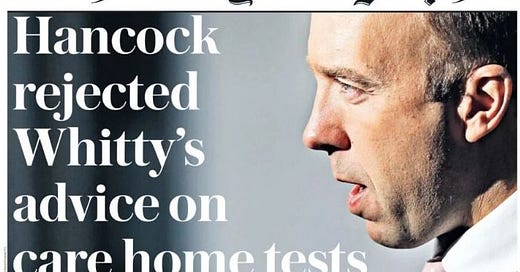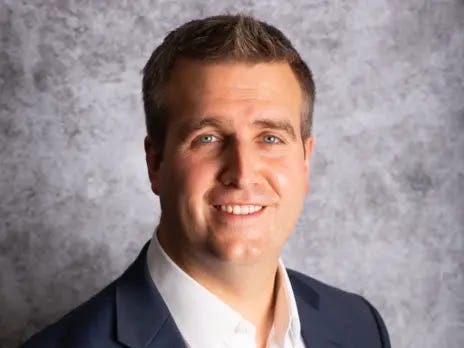Is Will Lewis toast at the Post? | Matt Hancock loses Telegraph IPSO complaint
And we publish new research on the extent — or lack — of local council coverage in London
Welcome to your daily newsletter from Press Gazette on Monday, 24 June, 2024.
Sir William Lewis is facing a rare setback this week in his heretofore illustrious media career.
Robert Winnett's announcement that he will no longer be taking up the post of Washington Post editor following a staff revolt presents a likely fatal blow to the authority of CEO Lewis.
It also highlights an intriguing ethical divide between US and UK journalism.
In the UK Lewis was lauded for exposing the MPs' expenses scandal even though it involved a payment of £110,000 for stolen information. The fact he may have relied on illegally obtained information whilst business editor of The Sunday Times has been overlooked as old news from a different era.
And on his role in the hacking scandal, there has been far more concern about information he had a role in disclosing (that identified journalists and their sources) rather than emails which were destroyed and therefore hidden from police.
All this raking up of past sins appears to be mostly motivated by Post journalists unhappy at the way Lewis has shaken things up at the title. Democracy may die in darkness, as they say, but newsrooms are not generally democracies and without the authority to hire and fire editors it has hard to see how Lewis can continue to do his job.
Journalistic ethics were in the spotlight at Lewis's old paper on Friday with a huge ruling from regulator IPSO.
Former health secretary Matt Hancock has spent over a year disputing the Telegraph's Whatsapp Files front page, which was based on information shared with the paper by Isabel Oakeshott in breach of a confidentiality agreement.
She argued that the public interest in disclosure outweighed her duty of confidence to a source.
Hancock complained that he was not contacted in advance of publication and that a story claiming he ignored expert health advice at the height of the coronavirus pandemic was misleading because it was based on Whatsapp messages which provided only a partial account of events.
IPSO said the story was accurate and, intriguingly, said there is no duty to go to the target of stories in advance provided the story is true.
And finally we publish new research on London's patchy local media scene. The English capital has a population of nine million, more than Scotland and Wales combined, yet there is no regular coverage of local authority matters in some boroughs. More encouraging are signs that alternative news outlets have managed to step into the news vacuum in some areas.
New from Press Gazette
Telegraph vindicated by IPSO over ‘Whatsapp files’ Matt Hancock front page
In evidence to press regulator IPSO, Hancock said he had not rejected Whitty’s advice but rather, “due to testing capacity, the advice could not be operationalised”.
Robert Winnett will stay at Telegraph after Washington Post move controversy
Winnett’s appointment prompted critical coverage in US media, with headlines focusing on his work at the Sunday Times in the early 2000s, with concerns raised that Winnett published stories based on material obtained illegally by blagger John Ford.
Mind the London news gap: Two boroughs have little coverage of council activities
Ealing appears to be the best-covered London borough, with five news outlets regularly covering news from council meetings.
News diary 24 – 30 June: BBC hosts final UK debate, CNN hosts first US debate
A look ahead at the key events leading the news agenda this week, from the team at Foresight News.
News in brief
Redbird IMI has started a new auction to sell The Telegraph and Spectator, seeking to recoup at least the £600m it spent acquiring the titles. The FT reports first bids are sought by the end of July. (Financial Times)
The Washington Post has continued investigating its own CEO, revealing that Will Lewis-founded startup The News Movement has a commercial partnership with the Post. (The Washington Post)
The chief executive of neighbourhood-focused social media network Nextdoor has told Semafor the company is looking at bringing more news onto the platform, saying he wants to add a greater aspect of discovery into the app. (Semafor)
Previously on Press Gazette
Women’s voices and issues are not being heard in UK general election
Politicians’ claims rather than AI fakes have kept UK election fact-checkers busy
‘Pick up the phone’ is one of 26 fixes offered to police by Crime Reporters Association
Message from Australia: New UK government facing battle with Google and Facebook
How Total Politics is making un-paywalled political journalism pay
Mystery Barclay loans drive Telegraph to record £245m loss despite underlying profitability
Latest podcast
How Total Politics is making B2B work without a paywall
Press Gazette sat down with Mark Wallace, the chief executive of Total Politics Group, to find out how the company makes free political journalism pay.
Press Gazette asked how the Politics Home, Conservative Home and The House publisher is faring since incorporating in its new form in 2022, and finds out how the business has found a way to hedge against political cycles by selling services to both sides of the aisle.





